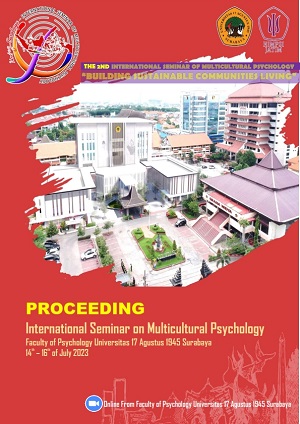Parenting Stress As A Mediator Between Maternal Parenting Self-Efficacy And Adaptive Behavior Of Children With Intellectual Developmental Disorder
Abstract
Mothers of children with Intellectual Developmental Disorder (IDD) are particularly vulnerable to parenting stress. Previous studies suggested that mothers who have high parenting self-efficacy and low parenting stress, show better adaptive behavior in children. This study aimed to determine parenting stress as a mediator between maternal parenting self-efficacy and adaptive behavior children with IDD. This quantitative study involved 45 mothers of children with IDD as participants by accidental sampling. The data collection method used three measuring instruments, Vineland Adaptive Behavior Scale (VABS), Parenting Stress Index-Short Form (PSI-SF), and Parenting Self-Efficacy Scale. Correlational analysis, path analysis and Sobel Test were used. The results of this study found that parenting stress acts as a mediator of the effect of maternal parenting self-efficacy on the adaptive behavior of children with IDD as indicated by the Sobel value of 2.02935786; p = 0.04242185 (p<0.050). Increasing maternal parenting self-efficacy will reduce parenting stress and ultimately improve the adaptive behavior of children with IDD, but the role of clinicians is also needed to support the improvement of protective factors such as parenting self-efficacy and increase adaptive behavior through behavioral therapy to achieve better adaptive behavior.
Keywords: Adaptive Behavior Children with IDD; Parenting Self-Efficacy; Parenting Stress






_(1).jpg)




